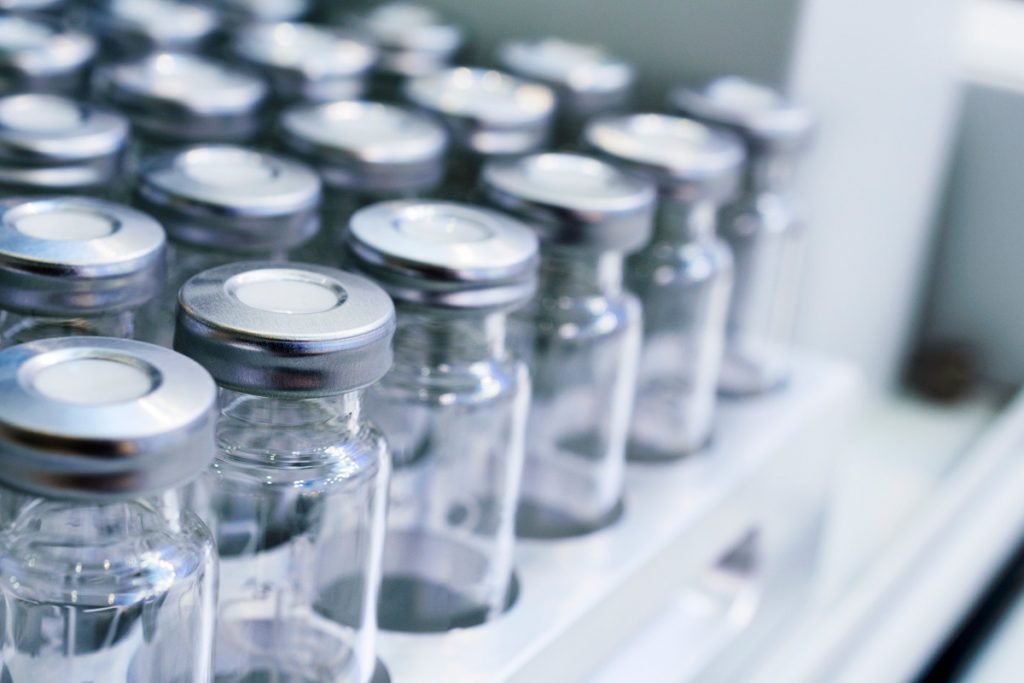Mississippi will pause delivery of the Johnson & Johnson COVID-19 vaccine after six women nationwide developed a serious form of blood clot between one and two weeks after receiving the shot. Those six cases emerge from nearly 7 million total delivered J&J shots in America, and include one hospitalization and one death.
The Food and Drug Administration released information on the rare complications, including signs to watch for in the newly vaccinated. “People who have received the J&J vaccine who develop severe headache, abdominal pain, leg pain, or shortness of breath within three weeks after vaccination should contact their health care provider,” the FDA warned.
The pause has no connection to the Moderna or Pfizer mRNA vaccines, and state health leadership stressed that it would not significantly affect the ongoing vaccination campaign.
State Health Officer Dr. Thomas Dobbs explained the extraordinary precautions taken at a Mississippi State Department of Health press event today. “We’re talking about a rare complication … the relative risk of this vaccine is so low compared to COVID,” he said.
“One in a million is a very uncommon thing to happen,” Dobbs added. “Like we said, more than one in 10 people over the age of 65 diagnosed with COVID-19 in Mississippi will die. There are orders of magnitude between those risks.”
No Severe Thrombosis Seen In Mississippi
The complication in question is a cerebral venous sinus thrombosis, a severe and rare form of blood clot unlike the thrombosis associated with minor clots. “It’s an entirely different syndrome, and it requires an entirely different kind of treatment,” Dobbs said. That is relevant to why the Centers for Disease Control and the FDA decided to pause the vaccinations.
“This syndrome seems to be similar to a rare thing called auto-immune heparin-induced cytopenia, where there’s an interaction between the antibody and platelets, (which) cause clotting,” Dobbs said.
On social media, many observers drew comparisons between the vanishingly low chances of blood clots from the J&J vaccine and higher risk of clotting associated with regular use of hormonal birth control. Dobbs and Byers agreed that the vaccine was extraordinarily safe, but cautioned that there was no observable link between the syndrome that has paused the vaccine’s rollout and contraception. “(This) does not seem to be, at this time, related to birth control,” Dobbs said.

Photo courtesy State of Mississippi
The CDC and FDA statement addressed the severity of cerebral venous sinus thrombosis and what separates it from regular clots. “Treatment of this specific type of blood clot is different from the treatment that might typically be administered. Usually, an anticoagulant drug called heparin is used to treat blood clots. In this setting, administration of heparin may be dangerous, and alternative treatments need to be given.”
Very few vaccinated Mississippians fall into the category that health officials are watching for signs of the complication. So far, all six of the women who have experienced the severe clotting issue were between the ages of 18 and 48. Of the state’s 883,729 individuals who have received at least one dose, 42,000 received J&J shots. Of those individuals, 54% were women, and 36% were roughly within the age range which has seen the limited cases of clotting.
That means about 8,165 women are in the same category as those who experienced the severe thrombosis. Of that group, not one has developed the severe reaction to the vaccine.
“We don’t have any of the six cases of this thrombotic event in Mississippi,” State Epidemiologist Dr. Paul Byers explained. “And, honestly, we’ve not seen severe side effects or adverse events related to the Johnson & Johnson vaccine in Mississippi.”
Breakthrough Cases Rare
MSDH leadership acknowledged another fear surrounding the vaccinations: the emerging data on where and when they fail. An extremely small percentage—just under 1 in 9,000—of fully vaccinated Mississippians have experienced confirmed breakthrough infections. A breakthrough infection is a case of COVID-19 contracted over two weeks after an individual’s final vaccine shot.
At the press event, MSDH Communications Director Liz Sharlot informed the Mississippi Free Press that, to date, Mississippi has experienced 78 breakthrough infections, compared to 635,370 fully vaccinated Mississippians.
Byers asserted that additional information on the demographics of those breakthrough infections was forthcoming, but noted that one Mississippian in those 78 breakthrough cases died of COVID-19.
This single death was later misreported by WLBT as a death from the COVID-19 vaccine, a misunderstanding that the outlet quickly acknowledged and corrected. No Mississippian has died from a reaction to any COVID-19 vaccine—both Dr. Dobbs and Dr. Byers stated conclusively that Johnson & Johnson’s vaccine had caused no severe adverse reactions in the state at all.
State and national health leadership have repeatedly asserted that some limited number of breakthrough infections is expected, and that numbers presented so far reinforce the effectiveness of the vaccines, rather than calling them into question.
“Currently, there is no evidence that COVID-19 after vaccination is occurring because of changes in the virus,” Kristen Nordlund, CDC spokeswoman, told The Washington Post in a statement.










